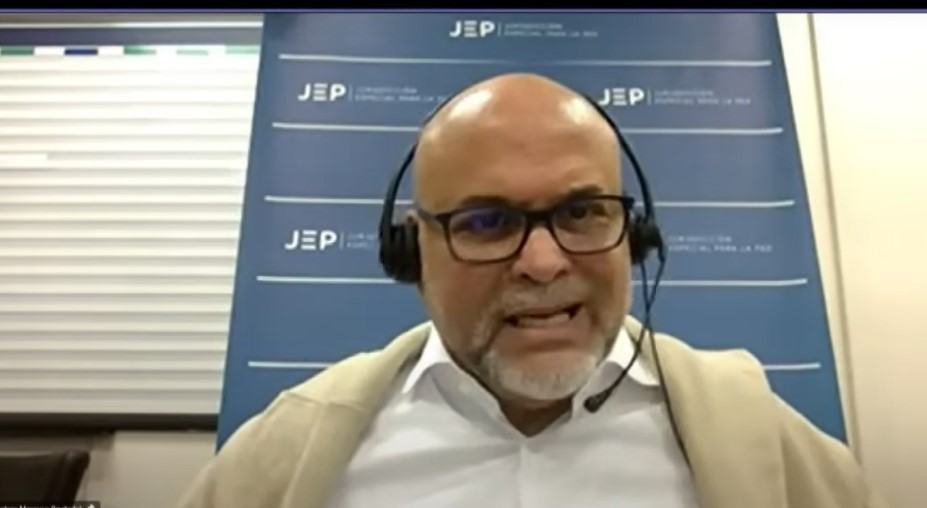
Former Colombian paramilitary leader Salvatore Mancuso has given his assurance that he is committed to peace and President Petro’s Total Peace project. Mancuso spoke yesterday in an exclusive interview for Colombian public television about various current issues and his role in the dialogues with the residual paramilitary groups still operating in certain areas of Colombia.
Mancuso affirmed that he did not arrive in the country with an attitude of revenge against former President Alvaro Uribe, who signed his extradition to the U.S. in 2008, where he has spent 16 years in prison, between pre-trial detention and a final sentence for drug trafficking.
The once feared leader of the United Self-Defense Forces of Colombia (AUC) has reaffirmed his commitment to the recognition of responsibilities and the construction of the truth about the events of one of the darkest and most violent times in Colombia, in which he played a leading role.
From La Picota prison in Bogota, where the former paramilitary has been held since his return to Colombia at the end of February, Mancuso spoke to Colombian public television about President Petro’s Total Peace project, while he awaits the final decision of the Colombian justice system on his criminal situation in Colombia.
The State’s non-compliance
Mancuso said in the interview that he is willing to contribute his twenty years experience as a demobilized member of an illegal armed group. He emphasized that both the paramilitary dissident groups, which emerged from 2004, after the disappearance of the AUC, and the left-wing guerrilla dissident groups, born from the demobilization of the FARC-EP in 2016, are the result of the State’s non-compliance.
In this sense, the former paramilitary chief underlined the importance of the State’s compliance with what was agreed in the peace accords to avoid the perpetuation of violence. To illustrate his words, he gave as an example the resurgence of the armed group called Gulf Clan, or Gaitanista Army of Colombia, as a result of this situation.
Furthermore, he highlights that this non-compliance has generated not only physical insecurity, but also legal insecurity for the demobilized members of the paramilitary groups, with a worrying number of them murdered to date. This is exactly the same situation that has occurred with FARC demobilized combatants over the last eight years.
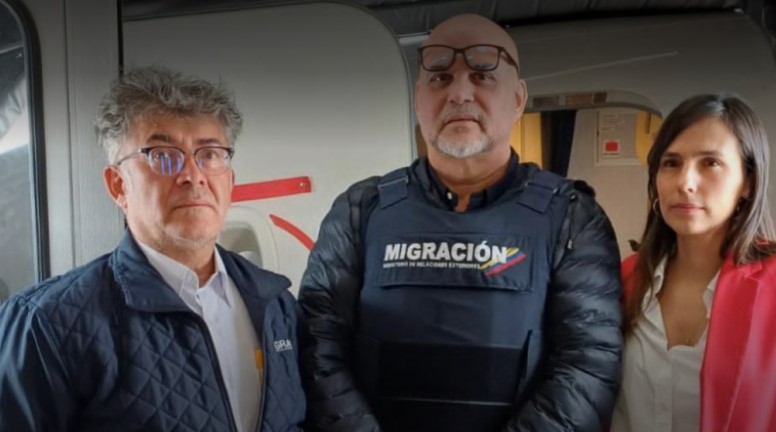
No revenge against former president Uribe
Despite repeated accusatory messages about former President Alvaro Uribe’s knowledge of many of the paramilitaries’ criminal activities, Mancuso said in the interview that he did not come to Colombia for revenge.
Mancuso said that the former head of state is not a relevant figure for him or for the peace process in Colombia. He criticized the so-called Democratic Security policy, implemented during the Uribe administration, arguing that fear and violence were used as political tools. “The Democratic Security policy always insisted on using fear and violence as a political platform, without these factors their political discourse was over,” he told the public television interviewer yesterday.
On the other hand, the former paramilitary chief accused Alvaro Uribe of “not doing a service to the country”, as he is not helping peace in Colombia. However, Mancuso said he is not worried about the former president’s attitude, because “peace is possible without Uribe”.
Mancuso also regretted that those who used to see the paramilitaries as heroes, for their fight against the leftist guerrilla groups, now label them as mere criminals – a reference to the attitude of Uribe himself and his political party, Democratic Center.
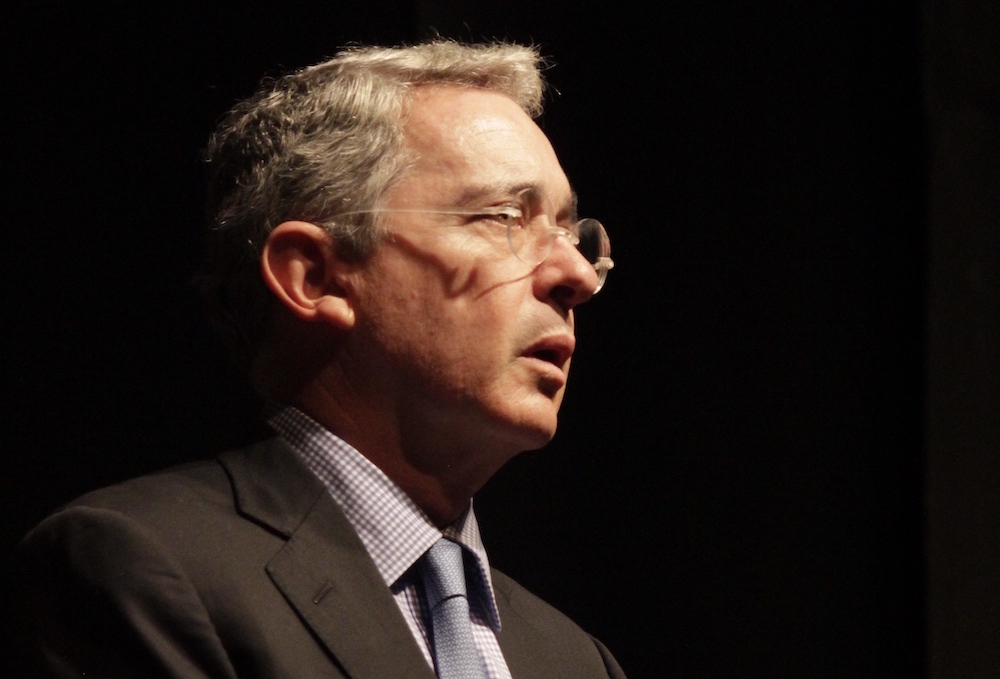
Plan to assassinate Hugo Chavez
Among other important revelations made by Salvatore Mancuso on Colombian television was the confirmation of his recruitment to participate in a coup in Venezuela and the subsequent assassination of the president at the time, Hugo Chavez.
Mancuso said, however, that he rejected the offer, as he understood that his role was to fight the communist insurgency inside Colombia. At that time, the neighboring country was living the first years of the “Bolivarian revolution”, after Hugo Chavez came to power democratically in 1998.
The Venezuelan president experienced a failed coup d’état attempt in April 2002, but it was motivated by internal opponents, without foreign participation. The political leader of that movement, the president of the employers’ association Fedecámaras, Pedro Carmona Estanga, ended up going into exile in Colombia, after the military, close to Chavez, replaced him in the presidency of the country, in the early morning of April 14 of that year.
Since then, several subsequent coup attempts and plans to physically eliminate Chavez were denounced from Venezuela. His successor in power, Nicolas Maduro, has also made public alleged attempts to overthrow him, some of them, according to accusations of the Venezuelan president, thought and executed from Colombia at the time of President Ivan Duque (2018-2022), belonging to the same party of Alvaro Uribe.
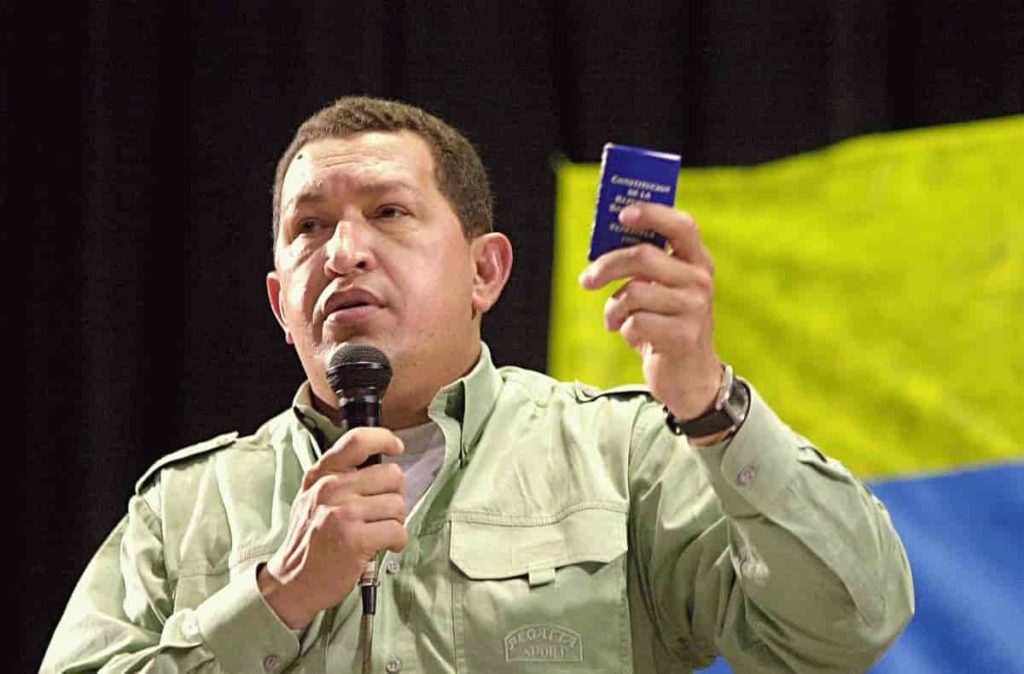
Reparation of victims
Regarding his contribution to the reparation of victims, the former paramilitary highlighted that he has handed over more than 430 assets as part of this process, but expressed his concern about the fate of these and their use by the state. “One of the tasks I have is to see what happened to the assets I handed over,” he told the television interviewer.
The role of peace mediator that the government of President Petro has given to the former paramilitary leader will be an important one. It is worth noting that this commitment for truth and reparation has been achieved by Mancuso with Colombia’s first leftist president, in the past an obvious ideological and military enemy.
“I came to dedicate the rest of my life to making amends,” said Salvatore Mancuso in reference to his current and future role in Colombia. In yesterday’s interview the former paramilitary leader assured his support for…..”the Total Peace that President Petro seeks”, and added “I am ready to participate with my experience and knowledge in all the paths that lead us to achieve that peace”.
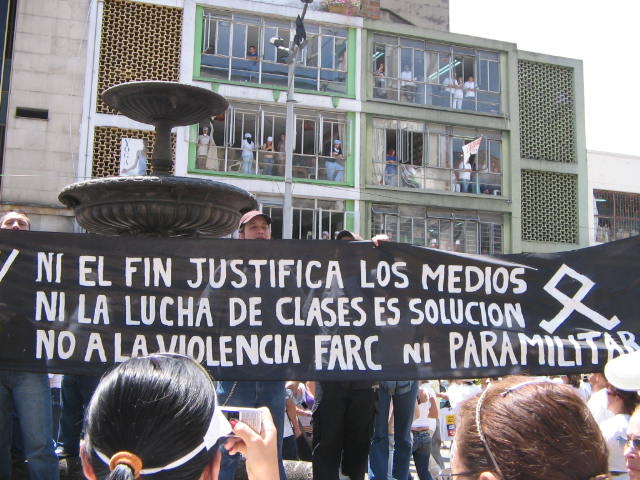
Peace mediator
The State hopes that his appointment as peace mediator will facilitate the approach of the paramilitary groups still operating in Colombia to the dialogue table offered by the government. In fact this very week it has been confirmed that the Gulf Clan has accepted President Petro’s offer for dialogue.
“The interesting thing is that the main commanders participate, Chiquito Malo and all the others who are there, that they come to represent their interests and those of the communities where today they have territorial control,” Mancuso said on television as about how to ensure the success of these dialogues.
Mancuso expressed confidence in President Petro’s intentions and his willingness to extend the 2004 and 2016 peace to other dissident armed groups. “When one is an accompanier in a process one cannot say anything and is in favor of the one who asks him to accompany him, which is the State. But if the State asks this of the multilateral organizations, that they be verifiers or guarantors of the process, it will generate confidence in the guarantors of the conflict because they know that their and the State’s pledged word will be fulfilled. And the gesture of President Petro to close Ralito (Agreement that in 2004 facilitated the paramilitary demolition) is a strong gesture, it shows that he is willing to keep the promise that the State has made”, he said.
See all the latest news from Colombia and the world at ColombiaOne.com. Contact our newsroom to report an update or send your story, photos and videos. Follow Colombia One on Google News, Facebook, Instagram, and subscribe here to our newsletter.

